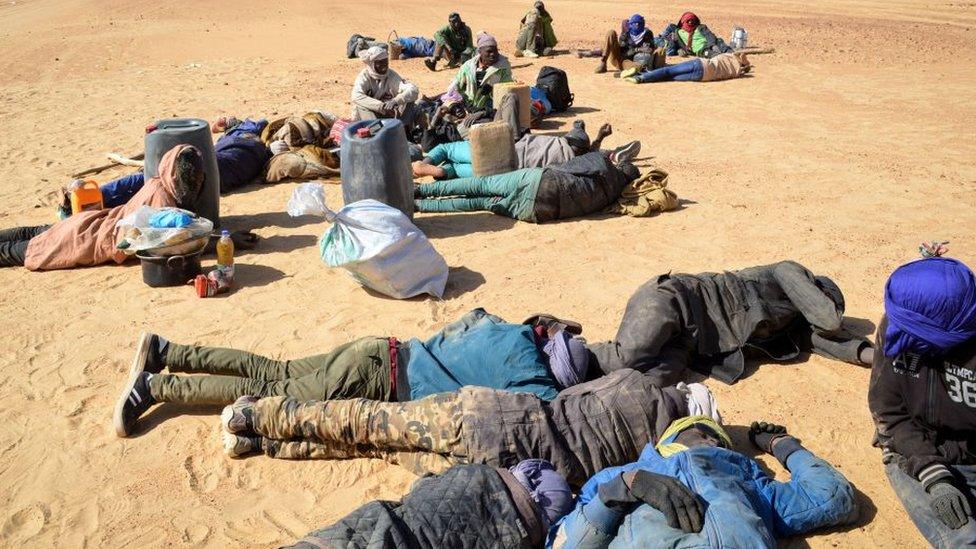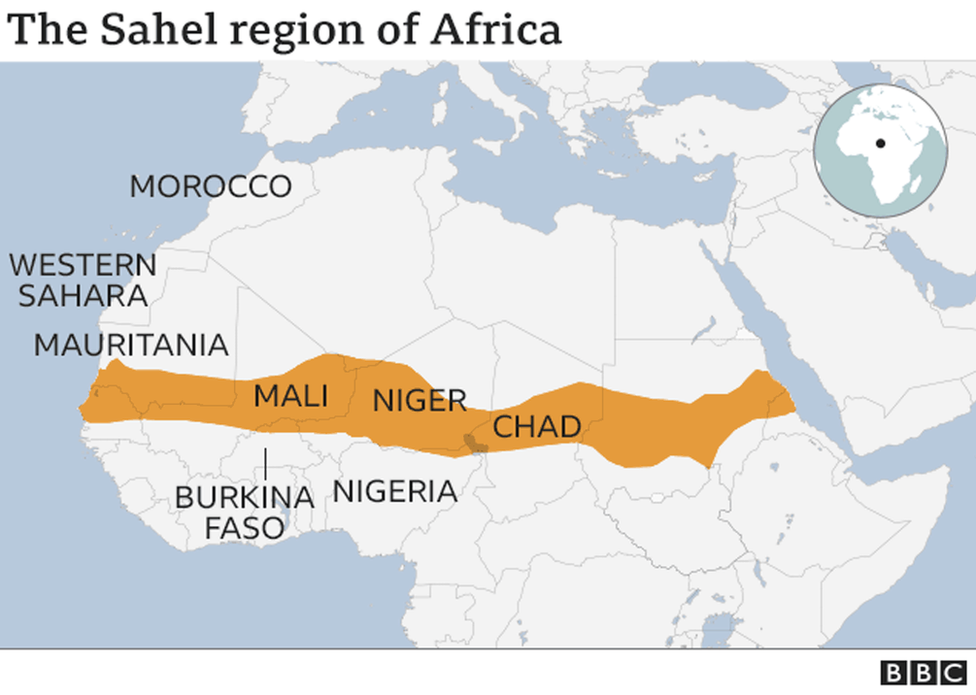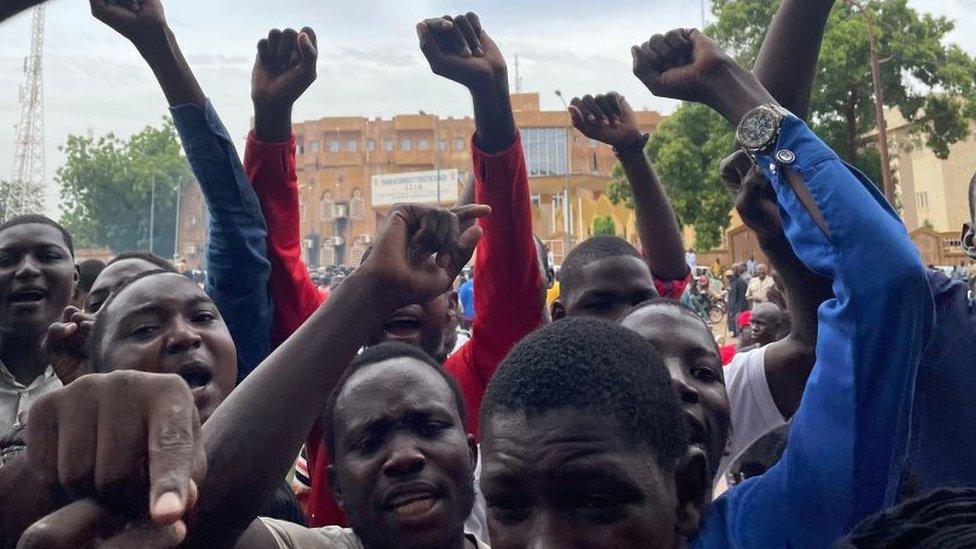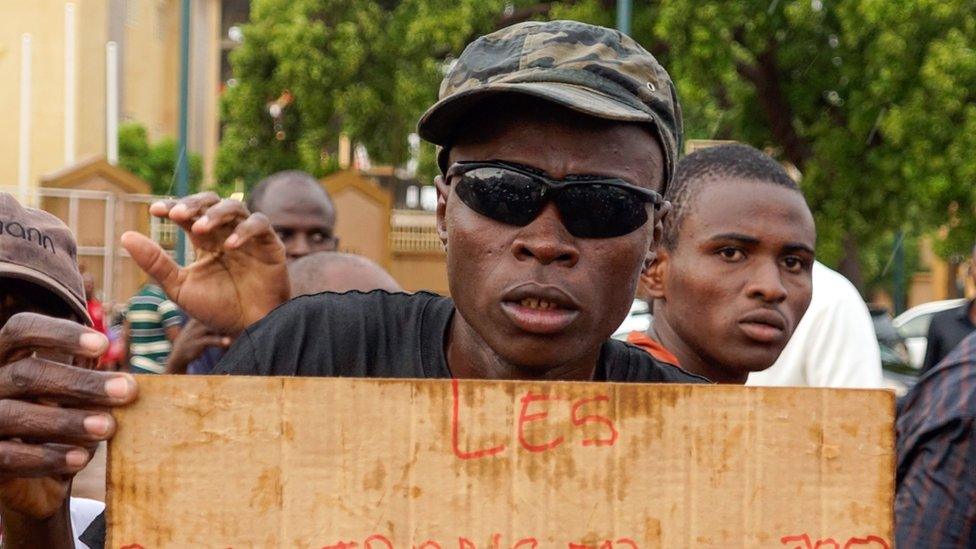Niger coup leaders repeal law against migrant smuggling
- Published

This photo from 2019 shows a group of migrant men resting before carrying on their journey across the deserts of northern Niger
Coup leaders in Niger have overturned an eight-year-old law criminalising migrant smuggling in the country.
The legislation allowed authorities to take action against smugglers who transported migrants through Niger's vast desert on to Libya and Europe.
But President Mohamed Bazoum - who had worked with the EU to stem the flow of people across the Mediterranean - was overthrown in July in a coup.
Gen Abdourahmane Tchiani has since declared himself the new head of state.
His ruling junta announced the repeal in a statement, saying the law "did not take into account the interests of Niger and its citizens".
It also said convictions handed down under the 2015 law would be "erased".
The move is an indication that the junta in Niger's capital, Niamey, plans to assert its authority over the country's sovereignty, in defiance of international pressure.
Following the coup in the summer, the European Union suspended all security co-operation with the landlocked country in West Africa.
Josep Borrell, the EU's foreign policy chief, joined the US and France in July by refusing to recognise Gen Tchiani as leader. He also said budgetary aid to Niger would be suspended indefinitely.
It is not yet clear how the European bloc will respond to what is a huge blow to its strategy for managing migration flows from Africa.
In 2015, more than a million asylum seekers and migrants tried to reach Europe, prompting the push for Niger to pass the now-overturned law.
Numbers reduced significantly as a result - but traffickers bemoaned its implementation in the years that followed.
One, Bachir Amma, told the BBC back in 2019: "If the law was eased I would go back to people trafficking, that's for sure. It earned me as much as $6,000 [£4,700] a week, far more money than anything I can do now."
He added that the law's strictness meant, if caught, traffickers could go to prison for a "long time" and have their vehicles confiscated.
There are now concerns that trafficking gangs could see the repeal of the law as an opportunity to once again push migrants into countries that border Niger, such as Libya or Algeria, for onward transport to Europe.
Niger is a key part of the African region known as the Sahel - a belt of land that stretches from the Atlantic Ocean to the Red Sea.

Related topics
- Published28 July 2023

- Published29 July 2023

- Published31 July 2023
